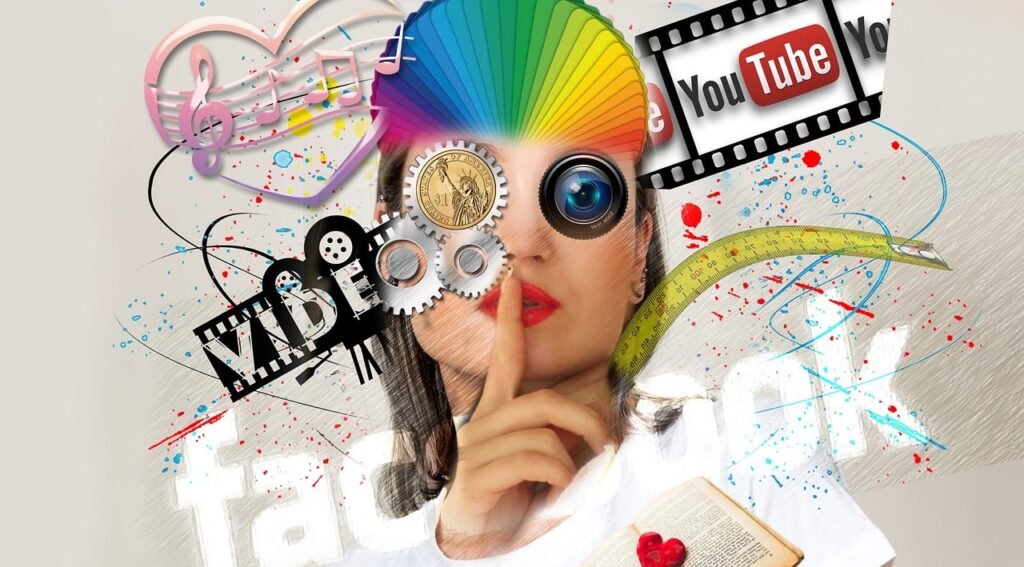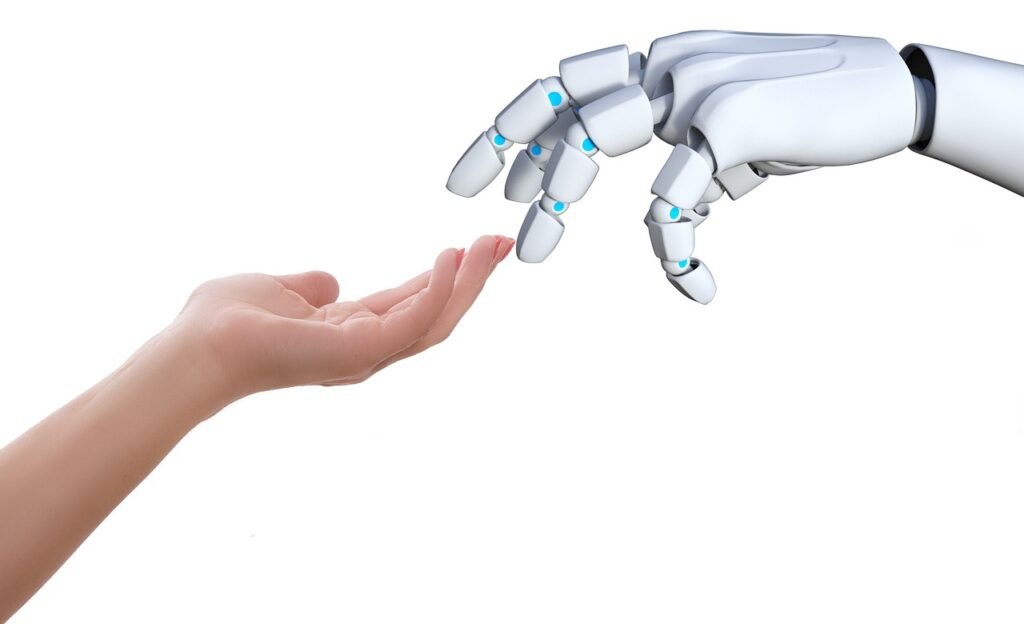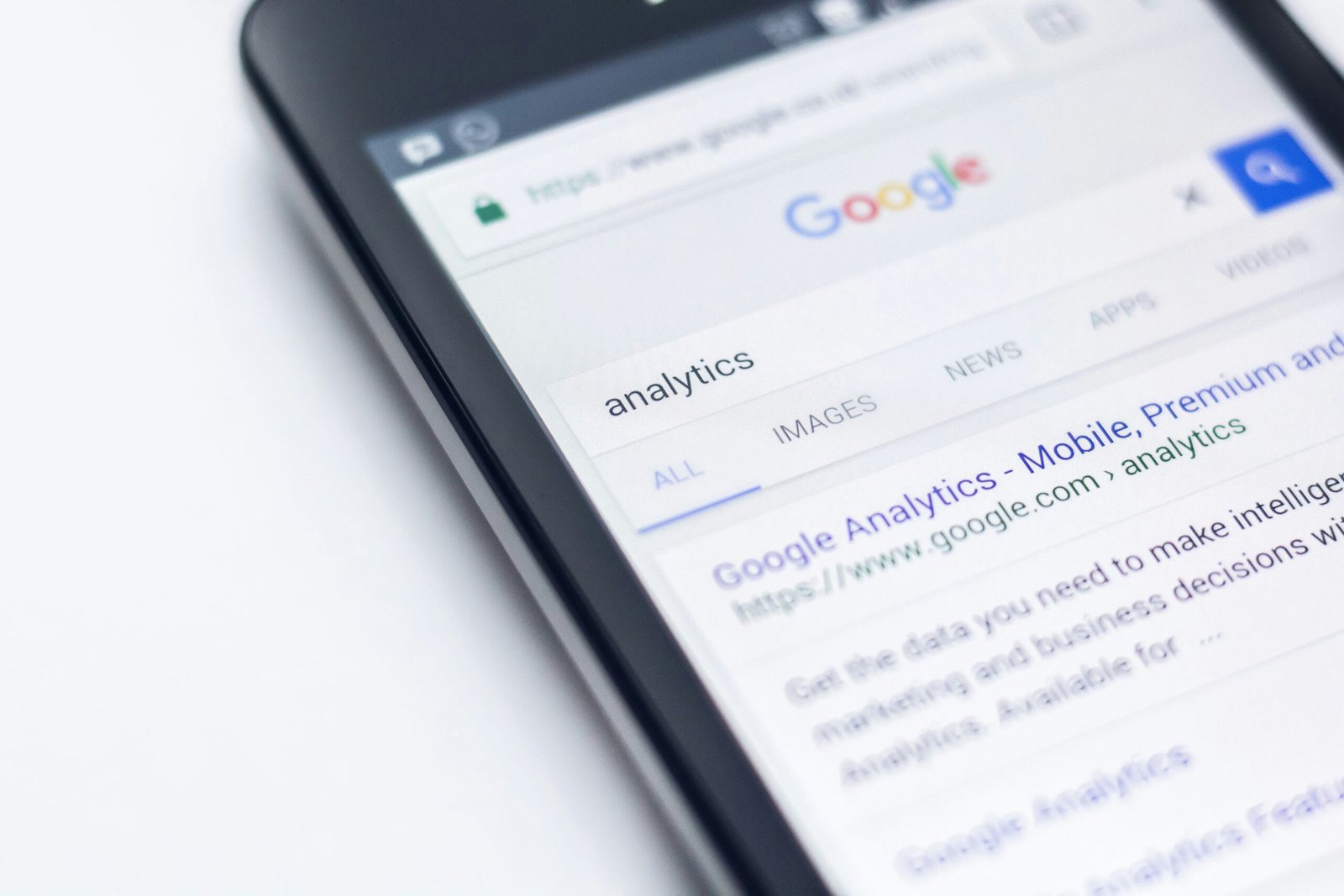Introduction to AI for Social Media and Marketing Automations
Artificial Intelligence (AI) has become a cornerstone in the evolution of social media and marketing automations, fundamentally reshaping how businesses operate in the digital realm.
Over the past decade, AI technologies have advanced significantly, becoming integral to processes that were once manual and time-consuming. These innovations have propelled AI from a futuristic concept to a practical tool that enhances efficiency and engagement in unprecedented ways.
One of the most significant transformations brought by AI is in the realm of social media automation. By leveraging AI, businesses can automate repetitive tasks such as scheduling posts, curating content, and managing interactions, thereby freeing up valuable time for strategic planning and creative endeavors.
AI-driven tools can analyze vast amounts of data to provide insights and recommendations that optimize content performance and audience engagement. This not only improves efficiency but also ensures that social media strategies are data-driven and effective.
Marketing automation has similarly benefited from AI advancements. AI-powered platforms can segment audiences, personalize marketing messages, and track customer journeys with remarkable precision.
These capabilities enable marketers to deliver highly targeted campaigns that resonate with individual preferences, leading to improved conversion rates and customer satisfaction.
AI can and will predict trends and behaviors, allowing businesses to stay ahead of market dynamics and adapt their strategies proactively.
Statistics underscore the growing importance of AI in these fields.
According to a report by MarketsandMarkets, the AI in marketing market size is expected to grow from $12 billion in 2020 to $108.8 billion by 2025, at a Compound Annual Growth Rate (CAGR) of 45.3%. In social media, AI tools are projected to manage nearly 80% of all customer interactions within the next few years, highlighting the rapid adoption and reliance on these technologies.
AI is not just a transient trend but a transformative force in social media and marketing automations. Its ability to automate tasks, enhance efficiency, and drive customer engagement makes it an indispensable asset for businesses aiming to thrive in the digital age.
As AI continues to evolve, its impact on these fields will only grow, ushering in a new era of innovation and effectiveness.
Understanding AI for Social Media Automation

Social media automation refers to the use of software tools to manage, schedule, and optimize social media content and interactions. It enables businesses to handle their social media presence more efficiently, reducing the time and effort required for manual posting and engagement.
By leveraging social media automation, companies can ensure consistent and timely posts, maintain active engagement with their audience, and focus on strategic initiatives rather than repetitive tasks.
One of the core functionalities of social media automation is scheduling posts. Tools such as Hootsuite, Buffer, and Sprout Social allow users to plan and queue posts across multiple social media platforms.
This not only ensures that content is shared at optimal times to maximize audience reach but also helps businesses maintain a steady flow of communication with their followers.
Additionally, these tools provide analytics and insights into the performance of posts, enabling marketers to adjust their strategies based on data-driven decisions.
Content curation is another critical aspect of social media automation. By using AI-driven algorithms, tools like Feedly and Pocket can aggregate relevant content from various sources, helping businesses share valuable and engaging materials with their audience.
This process not only saves time but also enhances the brand’s credibility by consistently providing high-quality content tailored to the interests of their followers.
Engagement is a vital component of social media success, and automation tools can significantly streamline this process. AI-powered chatbots and automated responses can handle common queries and interactions, ensuring prompt replies and maintaining customer satisfaction.
Platforms like Sprout Social also offer social listening features, enabling businesses to monitor conversations and trends related to their brand, industry, or competitors. This allows for timely and relevant interactions, further strengthening the connection with the audience.
Popular social media automation tools such as Hootsuite, Buffer, and Sprout Social utilize AI to enhance various aspects of social media marketing. From scheduling and analytics to content curation and engagement, these tools empower businesses to manage their social media presence more effectively.
By harnessing the power of AI automation, companies can optimize their marketing efforts, stay ahead of competitors, and build stronger relationships with their audience.
AI-Powered Marketing Automation

Marketing automation refers to the use of software platforms and technologies to streamline, automate, and measure marketing tasks and workflows. This approach aims to enhance efficiency and grow revenue faster.
The integration of artificial intelligence (AI) into marketing automation has revolutionized the way businesses approach these tasks. AI-powered marketing automation leverages machine learning algorithms and data analytics to optimize various aspects of marketing, making processes more efficient and effective.
One of the primary areas where AI enhances marketing automation is in lead generation. AI algorithms can analyze vast amounts of data to identify potential leads with a higher probability of conversion. Tools like HubSpot and Marketo utilize AI to score and prioritize leads, ensuring that marketing efforts are directed towards the most promising prospects. This not only saves time but also increases the chances of successful conversions.
Customer segmentation is another critical aspect of marketing automation improved by AI. Traditionally, segmentation was based on basic demographic information. However, AI can analyze behavioral data, purchase history, and engagement patterns to create more precise and dynamic customer segments. This allows for more targeted and relevant marketing campaigns, enhancing the overall customer experience.
Personalized marketing is perhaps one of the most impactful benefits of AI in marketing automation. AI can customize content and messaging for individual users based on their preferences and behavior. This level of personalization increases engagement and loyalty, as customers receive information that is genuinely relevant to them. Pardot, for instance, uses AI to tailor email campaigns and website experiences, ensuring that each interaction feels personal and meaningful.
Effective campaign management is another area where AI shines. AI tools can predict the best times to launch campaigns, optimize ad spend, and even suggest content topics that are likely to resonate with the target audience.
This data-driven approach ensures that marketing efforts are not just automated, but also intelligent. Platforms like HubSpot and Marketo integrate AI to provide insights and recommendations, enabling marketers to make informed decisions and achieve better results.
The integration of AI in marketing automation tools like HubSpot, Marketo, and Pardot is transforming the way businesses approach their marketing strategies.
By leveraging AI for lead generation, customer segmentation, personalized marketing, and campaign management, these tools provide smarter, more efficient marketing solutions that drive growth and enhance customer experiences.
Benefits of Implementing AI Automations in Social Media

In today’s digital age, the integration of AI automation into social media strategies is proving to be invaluable for businesses. One of the most significant advantages is the enhancement of content creation. AI tools can generate engaging and relevant content tailored to the specific interests and behaviors of target audiences. These tools analyze vast datasets to identify trending topics and optimize content for maximum engagement.
Optimizing posting schedules is another crucial benefit.
AI algorithms can determine the best times to post content based on user activity patterns, ensuring that posts reach the maximum number of followers when they are most active. This leads to increased visibility and higher engagement rates.
Customer interactions are also greatly enhanced through AI-driven social media automation. AI-powered chatbots can handle routine inquiries, provide instant responses, and even guide users through purchasing processes.
This not only improves customer satisfaction but also frees up human resources for more complex tasks.
AI provides valuable insights through advanced analytics
These insights help businesses understand their audience better, track campaign performance, and make data-driven decisions. For instance, sentiment analysis tools can gauge public opinion on a brand, allowing companies to adjust their strategies accordingly.
Several companies have successfully implemented AI in their social media strategies. For example, Starbucks uses AI to personalize customer experiences by analyzing purchase history and social media interactions.
Similarly, Netflix employs AI to recommend content tailored to individual user preferences, significantly enhancing user engagement.
Overall, leveraging AI for social media automation not only streamlines operations but also drives more effective and personalized marketing strategies. This transformative approach ensures that businesses stay competitive in a rapidly evolving digital landscape.
Benefits of AI in Marketing Automation

Incorporating AI into marketing automation offers a myriad of benefits that can significantly enhance an organization’s marketing strategies and overall performance.
One of the primary advantages is the enhancement of lead nurturing. AI-driven systems can analyze vast amounts of data to identify potential leads, predict their behavior, and personalize interactions. This ensures that marketing efforts are targeted and effective, leading to higher conversion rates.
Another substantial benefit is the ability to streamline workflows. AI automation tools can handle repetitive and mundane tasks such as scheduling social media posts, sending follow-up emails, and monitoring campaign performance. This not only saves time and resources but also reduces the risk of human error, allowing marketing teams to focus on more strategic initiatives.
Improved return on investment (ROI) is another critical advantage of using AI in marketing automation. By leveraging AI algorithms, businesses can optimize their marketing budgets by allocating resources to the most effective channels and campaigns.
This data-driven approach ensures that every dollar spent is maximized for the best possible outcomes.
AI can continuously analyze performance metrics and adjust strategies in real-time, leading to ongoing improvements in ROI.
Deeper customer insights are also a notable benefit of AI automation. AI can process and analyze customer data from various sources, providing marketers with a comprehensive understanding of their audience. This enables the creation of highly personalized and relevant marketing campaigns that resonate with customers, fostering stronger relationships and loyalty.
Numerous real-world examples demonstrate the efficacy of AI in marketing automation. For instance, Netflix uses AI to recommend content to its users, which has significantly increased user engagement and satisfaction.
Similarly, Starbucks leverages AI to personalize its marketing messages and offers, resulting in a more tailored customer experience and increased sales. These success stories underscore the transformative potential of AI in optimizing marketing efforts.
Challenges and Considerations in AI Automations

Implementing AI in social media and marketing automations presents a range of challenges and considerations that businesses must address to maximize the benefits of these technologies. One primary concern is data privacy.
As AI systems require vast amounts of data to function effectively, companies must ensure they are compliant with data protection regulations such as GDPR and CCPA. This involves securing data storage, managing user consent, and maintaining transparency about data usage.
Algorithm biases represent another significant challenge. AI systems learn from the data they are trained on, which can sometimes include inherent biases. These biases can lead to unfair treatment of certain groups or inaccurate predictions.
To mitigate this, businesses need to implement rigorous testing and regular audits of their AI models to identify and correct biases. Moreover, employing diverse datasets and continuously updating the algorithms with new data can help reduce these biases.
Integration with existing systems is also a critical consideration. Businesses often have established workflows and legacy systems that may not be fully compatible with new AI technologies.
It is essential that you conduct a thorough assessment of current systems and identify potential integration points. Collaborating with AI solution providers to customize the technology according to specific business needs can facilitate a smoother integration process.
The need for human oversight cannot be overstated. While AI can handle repetitive tasks and analyze large datasets efficiently, human intervention is necessary to interpret results, make strategic decisions, and handle exceptions. Businesses should establish clear guidelines for human oversight, ensuring that AI tools complement rather than replace human intelligence.
To overcome these challenges, businesses can adopt a phased approach to AI implementation, starting with pilot projects to test the waters before a full-scale rollout. Investing in employee training to enhance AI literacy and build a culture of continuous learning can also help in making the most out of AI technologies. By addressing these challenges proactively, businesses can harness the power of AI to drive innovation and efficiency in their social media and marketing efforts.
Future Trends in AI for Social Media and Marketing

As artificial intelligence continues to evolve, its impact on social media and marketing automation is becoming increasingly profound. One of the most notable future trends is the rise of chatbots, which are expected to become even more sophisticated. These AI-driven tools can manage customer interactions, provide instant support, and even facilitate transactions, thereby enhancing the customer experience and streamlining operations for businesses.
Voice search is another emerging technology that will shape the future landscape of social media and marketing automation. With the growing popularity of voice-activated assistants like Alexa and Siri, optimizing content for voice search is becoming essential.
This shift necessitates a new approach to SEO strategies, focusing on natural language processing and conversational queries to ensure content is easily discoverable through voice commands.
Predictive analytics is poised to revolutionize how businesses approach their marketing strategies. By leveraging data and AI algorithms, companies can predict consumer behavior, identify trends, and personalize marketing efforts.
This level of insight allows for more targeted campaigns, improving engagement rates and conversion metrics. Furthermore, predictive analytics can help in resource allocation, ensuring that marketing budgets are spent more effectively.
Another trend to watch is the integration of AI with other emerging technologies like augmented reality (AR) and virtual reality (VR). These immersive technologies can create unique and engaging marketing experiences that captivate audiences.
AI can help you to enhance user experience by personalizing content and interactions based on user preferences and behaviors.
Finally, AI-driven content creation tools are becoming more prevalent, enabling marketers to generate high-quality content at scale. These tools utilize natural language generation algorithms to produce articles, social media posts, and even video scripts, freeing up time for marketers to focus on strategy and creativity.
In conclusion, the future of AI in social media and marketing automation holds immense potential. As these technologies continue to advance, businesses must stay abreast of these trends to maintain a competitive edge and optimize their marketing efforts.
Embracing AI for a Competitive Edge

Integrating AI into your marketing strategies, your business can achieve unprecedented levels of efficiency, precision, and personalization.
From predictive analytics to automated content creation, AI empowers businesses to make data-driven decisions, enhance customer experiences, and ultimately drive growth.
As discussed, the use of social media automation tools allows marketers to schedule posts, analyze performance metrics, and engage with followers in real-time, freeing up valuable time to focus on creative strategies.
To maintain a competitive edge, businesses must stay updated with the latest AI trends and technologies. This involves continuous learning and adaptation as AI tools and methodologies evolve.
Investing in AI education for marketing teams and collaborating with AI specialists can provide the necessary expertise to leverage these technologies effectively.
For businesses looking to implement AI in their marketing strategies, the following actionable steps can serve as a guideline:
1. Assess your needs: Identify the areas of your marketing strategy that can benefit most from automation and AI integration.
2. Choose the right tools: Conduct thorough research to select AI and automation tools that align with your business goals and budget.
3. Train your team: Ensure that your marketing team is well-versed in using AI tools and understands the potential impacts on their workflows.
4. Monitor and optimize: Continuously monitor the performance of AI-driven initiatives and be prepared to make adjustments to optimize results.
5. Stay informed: Keep up with the latest developments in AI and marketing automation to stay ahead of the curve.
By embracing AI and leveraging its capabilities, businesses can not only enhance their marketing efforts but also foster a culture of innovation and adaptability. Still it’s important to stay genuine while doing so. Read more about Echtes Content Marketing für KMU
This strategy will ensure sustained success for your business in an increasingly competitive market.







